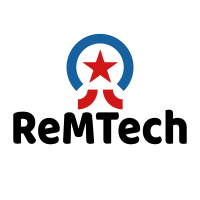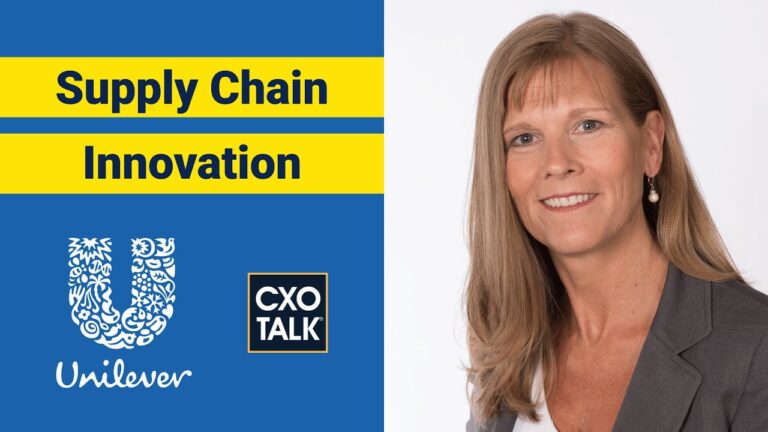Supply chain management (SCM) is a competitive differentiator at Unilever
Based on this Video Report, The Unilever supply chain extends beyond the manufacturing process into the core of digital transformation using artificial intelligence to manage supply chain risks and ensure the company can meet customer demand.
Wendy Herrick, Unilever’s head of Digital Supply Chain gives insights in this video. Wendy has 25+ years in Unilever and has held leadership roles across both Finance and Supply Chain. She started her career with Unilever in Bristol, England, and has worked in numerous countries across Europe, Asia, and the Americas.
In this Video, Following are discussed
- About global Supply Chain Management at Unilever
- Supply chain and digital transformation
- Cognitive automation, Aera Technology, and Supply Chain Resilience
- Supply chain innovation and digital transformation strategy
- SCM and machine learning
How Unilever manages potential supply chain disruptions In 2015, Wendy was appointed to the position of VP Supply Chain US responsible for end to end Supply Chain integration, Supply Chain Digital Strategy, and in-market business results. She was appointed Head of Digital Supply Chain in July 2018.
Global Supply Chain Management at Unilever: Unilever, as a multinational consumer goods company, has a complex global supply chain that spans numerous countries and involves a diverse range of products. The company places a strong emphasis on sustainability and responsible sourcing in its supply chain practices. Unilever’s Sustainable Living Plan, for instance, aims to decouple the company’s growth from environmental impact and increase positive social impact through its supply chain activities. Unilever employs a collaborative and integrated approach to global supply chain management, emphasizing transparency and traceability. The company works closely with suppliers to ensure responsible sourcing of raw materials, reduce environmental impact, and promote ethical practices throughout the supply chain.
Supply Chain and Digital Transformation: Unilever recognizes the transformative potential of digital technologies in optimizing its supply chain. Digital transformation initiatives are integral to enhancing efficiency, visibility, and responsiveness. Technologies such as Internet of Things (IoT), big data analytics, and cloud computing play a crucial role in providing real-time insights into the supply chain, facilitating demand forecasting, and improving overall operational agility.
Cognitive Automation, Aera Technology, and Supply Chain Resilience: Cognitive automation, including artificial intelligence (AI) and machine learning, is central to Unilever’s efforts in achieving a resilient and responsive supply chain. Aera Technology, an AI-driven platform, has been leveraged to enhance decision-making processes. This platform analyzes vast amounts of data, identifies patterns, and provides actionable insights, contributing to improved supply chain visibility and agility.
In the context of supply chain resilience, Unilever has likely utilized cognitive automation to anticipate disruptions, identify alternative sourcing options, and dynamically adjust production and distribution strategies in response to changing circumstances, such as the challenges posed by global events like the COVID-19 pandemic.
Supply Chain Innovation and Digital Transformation Strategy: Unilever’s supply chain innovation aligns with its broader digital transformation strategy. The company invests in technologies that drive efficiency, sustainability, and adaptability. For instance, the adoption of blockchain technology is explored to enhance traceability in the palm oil supply chain, ensuring responsible sourcing and environmental conservation.
The digital transformation strategy at Unilever also encompasses initiatives like smart factories, where automation, IoT, and data analytics converge to create intelligent manufacturing environments. These innovations improve production efficiency, reduce waste, and contribute to a more sustainable supply chain.
Supply Chain Management and Machine Learning: Machine learning is a key component of Unilever’s supply chain management strategy. By leveraging machine learning algorithms, Unilever can optimize demand forecasting, inventory management, and logistics planning. The ability of machine learning models to analyze historical data, detect patterns, and make predictions in real-time enhances Unilever’s decision-making capabilities.
Machine learning also plays a role in enhancing the personalization of product offerings and optimizing pricing strategies based on consumer behavior and market dynamics. Unilever’s utilization of machine learning aligns with its commitment to staying at the forefront of technological advancements to drive innovation and efficiency throughout the supply chain.
In conclusion, Unilever’s approach to supply chain management is characterized by a commitment to sustainability, digital transformation, and innovation. The integration of technologies such as cognitive automation, Aera Technology, and machine learning reflects the company’s dedication to building a resilient, transparent, and efficient global supply chain. These initiatives not only contribute to Unilever’s operational excellence but also align with its broader goals of social and environmental responsibility.
Some Public Facts about Unilever :
- Unilever plc is a British multinational consumer goods company with headquarters in London. Unilever products include food, condiments, ice cream, cleaning agents, beauty products, and personal care.
- It is the largest producer of soap in the world and its products are available in around 190 countries. Unilever’s largest brands include Axe/Lynx, Ben & Jerry’s, Dove, Omo/Persil, Heartbrand (Wall’s) ice creams, Hellmann’s, Knorr, Lux, Magnum, Rexona/Degree, Lifebuoy, Sunsilk and Sunlight.
- The Company is organised into three main divisions: Foods and Refreshments, Home Care, and Beauty & Personal Care. It has research and development facilities in China, India, the Netherlands, the United Kingdom, and the United States.
- Unilever was founded on 2 September 1929, by the merger of the British Soap-maker Lever Brothers and the Dutch margarine producer Margarine Unie. During the second half of the 20th century, the company increasingly diversified from being a maker of products made of oils and fats and expanded its operations worldwide.
- Learn about the History of Unilever in the Below Video.
- Unilever divested its specialty chemicals businesses to ICI in 1997. In the 2010s, under the leadership of Paul Polman, the company gradually shifted its focus towards health and beauty brands and away from food brands showing slow growth.
- It has a primary listing on the London Stock Exchange and is a constituent of the FTSE 100 Index. Unilever has a secondary listing on Euronext Amsterdam and is a constituent of the AEX index. The company was also a component of the Euro Stoxx 50 stock market index.
- Unilever also has a listing in the New York Stock Exchange.The completion of the unification of Unilever’s Dutch and UK arms under a single London-based entity was announced on 30 November 2020.
Learn about Sustainability at Unilever
Read More About Unilever Here: How Unilever became a Top Multi Billion Dollar Brand


